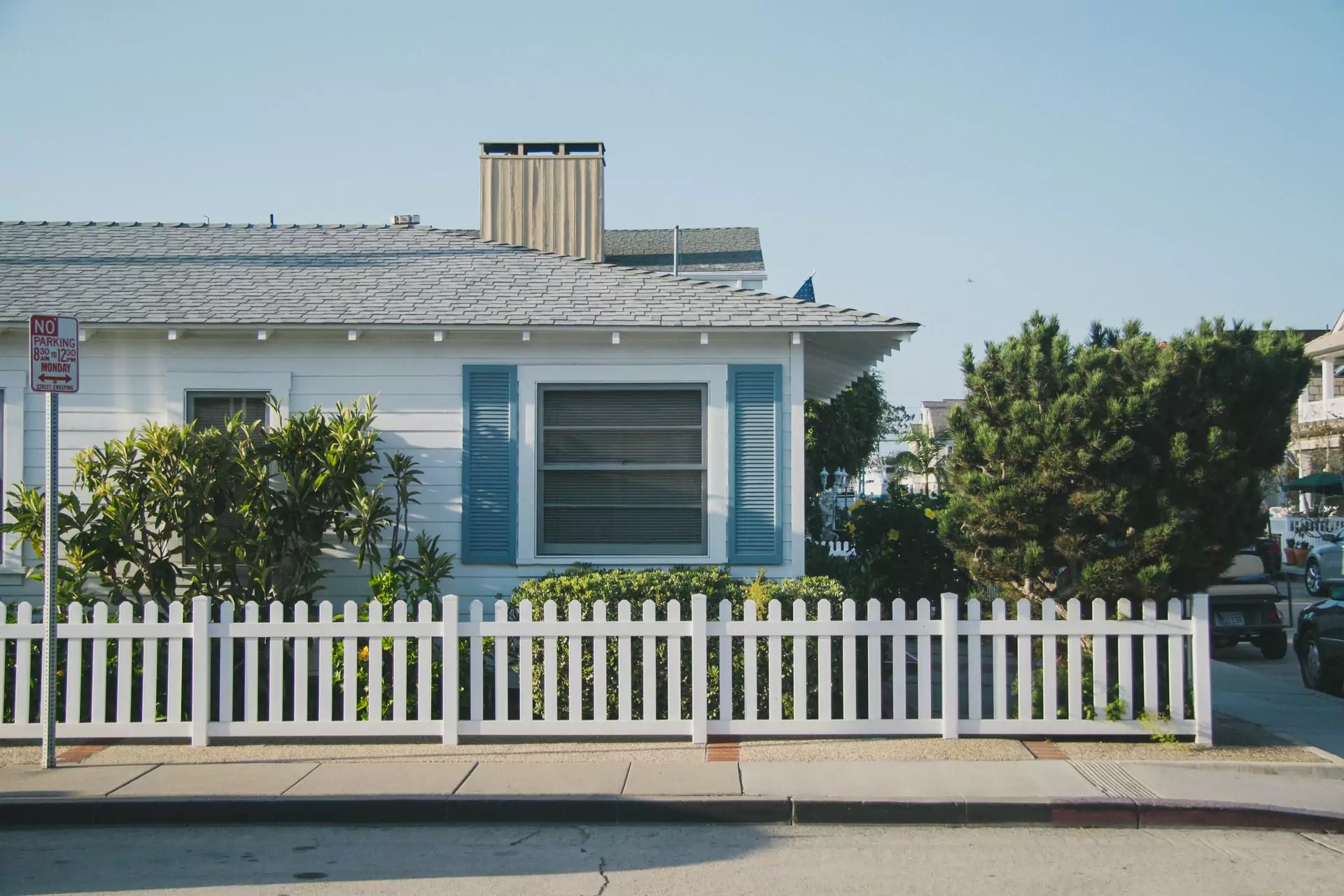Considering a commercial loan for your next rental property? Unlike conventional mortgages, commercial loans can fund larger properties and projects that have a higher potential for rental income and appreciation.
This guide covers everything you need to know about commercial real estate loans, how they differ from residential loans, what lenders look for during the application process, and how the length of a mortgage on rental property can impact your financing strategy, cash flow, and choice of real estate business account.
Key Takeaways
- Commercial real estate loans are used to purchase, construct, rehabilitate, or refinance commercial properties.
- Commercial real estate is any income-producing property, such as office buildings, warehouses, apartments, and residential investment properties.
- Loans for commercial property are issued to businesses by banks, commercial lenders, and private investors.
- Types of commercial property loans include SBA loans, permanent loans, and blanket loans.
- Financing options are intended for higher-return properties, often requiring larger down payments.
- Repayment periods are shorter than residential loans, with terms ranging from 5 to 20 years.
- Qualification focuses on debt service coverage ratio, credit history, financial reports, and property appraisal.
What is a Commercial Real Estate Loan?
Like a residential loan, a commercial loan (or commercial mortgage) can be used to buy, build, rehab, or refinance a property. However, commercial loans provide financing for commercial real estate, such as office spaces and apartment buildings, rather than residential properties. Commercial loans can be used for residential real estate if it’s an investment property or land for building single-family homes or multifamily properties.
Commercial Loans vs Residential Loans
| Commercial Loans | Residential Loans |
|---|---|
| Issued to businesses (e.g. LLC) | Issued to an individual |
| Shorter loan term repaid in installments and a lump sum | Longer loan term repaid in regular installments |
| Low loan-to-value ratios between 65% to 80% | High loan-to-value ratios up to 100% |
| Time to Close: 5-30 days | Time to Close: 45-60 days |
Pros and Cons of Commercial Real Estate Loans
Pros
- High Lending Limits: The average commercial loan amount is around $2 million compared to $280,000 for residential mortgages.
- Fast Closing Process: Certain commercial financing options provide quick funding if you have a gap in liquidity and need to push a deal through.
- Real Estate Equity: Commercial loans commonly have a low LTV, giving you more equity in the property to use for other real estate investments.
Cons
- Large Down Payments: Depending on the type of loan, down payments are usually 20% of the commercial property’s value, while personal loans for residential properties can start at 3%.
- High Interest Rates: Commercial loan rates are generally higher than residential loans due to the increased risk of financing expensive properties and potential for tenant default.
- Personal Financial Risks: Commercial mortgage lenders could seize personal assets if a borrower defaults on loan payments. This can include your home, savings, and investments.
If you plan on purchasing a multifamily property or commercial building for business or residential leasing (or both), then you will need a commercial loan. It’s ideal for rental property investors aiming for higher returns than those typically available from residential real estate.
In my experience as a landlord, commercial loans provide access to more financing options. I can go to private lenders when time-sensitive on or off-market opportunities arise. They pivot faster than traditional banks, so I can fulfill contract obligations and speed up a property acquisition. Likewise, quick fund disbursement is vital when I’m renovating a property to resell or rent out.
Key Differences in Eligibility, Terms, and Risk: Commercial Loans vs Residential Loans
Commercial real estate loans work differently than residential mortgages when it comes to eligibility criteria, loan terms, and risk factors.
Eligibility
- Residential Loans: Issued to individuals based on financial status and credit history. The application process is similar to getting a mortgage on a primary residence.
- Commercial Loans: Issued to business entities, such as corporations and REITs. Eligibility depends on the business or owner’s credit history and the property’s potential returns.
Loan Repayment Schedules
- Residential Loans: Typically amortized over 30 years with fixed monthly installments until the loan is repaid in full at the end of the term.
- Commercial Loans: Terms usually range from 5 to 20 years, followed by a “balloon payment” of the remaining balance on the loan.
Loan-to-Value Ratios
- Residential Loans: Can offer high LTV ratios up to 100% in some cases, like VA and USDA loans, FHA loans, and conventional loans.
- Commercial Loans: Generally have lower LTV ratios, between 65% to 80%, which requires a larger down payment from the borrower.
Risk Considerations
- Residential Loans: Less risk and more accessible financing options, but residential properties have lower rental income potential.
- Commercial Loans: Higher risks due to large investments and market complexity, but commercial real estate can produce significant financial gains.
What Are the Types of Commercial Real Estate Loans?
Commercial property loans aren’t one-size-fits-all. For landlords and real estate investors, choosing the right type of commercial loan is essential for successful property management and acquisition.
Small Business Administration (SBA) Loans
Best For: Businesses requiring government-backed security for financing owner-occupied commercial real estate.
The Small Business Administration (SBA) offers two programs for financial institutions to guarantee most or all the funds for commercial loans. If a borrower defaults on the loan, the government pays the lender back the guaranteed amount.
SBA loans are intended for commercial property that will be partially occupied by the business owner. These loans generally have lower down payments and repayment terms up to 25 years, but they are difficult to qualify for.
- SBA 7(a) Loans: Financing up to $5 million that can be used to purchase, renovate, buy equipment, or get working capital for commercial real estate properties.
- SBA 504 Loans: Fixed-rate financing up to $5 million for fixed assets, including existing buildings or land. These loans can’t be used for working capital.
Permanent Loans
Best For: Investors seeking long-term financing options for developing commercial real estate.
Permanent loans are commonly used for constructing or renovating a commercial real estate property. A bank, credit union, or life insurance company will start permanent financing as a commercial construction loan. It’s converted to a permanent loan with longer terms and fixed rates once a project is complete.
- 25-Year Amortization: Spreads the loan into fixed payments after an interest-only period for construction loans.
- Flexible Repayment Terms: Provide options for monthly, annual, and small lump-sum payments.
- Fixed Interest Rates: For predictable payments over the entire loan term, ranging between 5 to 30 years.
Blanket Loans
Best For: Real estate investors managing a portfolio of multiple properties.
Blanket loans allow commercial investors to consolidate multiple mortgages or purchase several properties at once. Other common uses for this type of financing include buying land for individual lots and house flipping.
Since a blanket mortgage covers multiple real estate properties, it usually has a high loan amount and large monthly payments that can increase the risk of default. As a result, lenders often prefer issuing blanket loans to experienced investors and developers who already own a portfolio of properties.
- Single Loan Application: Applies one monthly payment and interest rate using the same loan terms (2 to 30 years) for multiple properties.
- Release Clause: Allows you to sell or refinance one property while keeping the others under the same loan.
- Cash On-Hand: Increases since you’re paying one set of origination fees and closing costs rather than separate fees for each property.
What are the Advantages of Commercial Real Estate Loans?
For landlords and real estate investors, the flexibility and financial potential of commercial real estate loans make them a preferred choice, even when residential loans (also called residential mortgages) are an option.
Here’s how you can benefit from commercial loans for investment property:
Flexible Loan Terms
Typically ranging from 10-20 years, commercial loans for rental properties provide a shorter term than traditional 30-year residential loans. Options like a commercial bridge loan offer even shorter terms, ideal for quick transitions or developments.
Diverse Finance Options
Beyond traditional lenders, commercial loans can be acquired from private companies or individuals. This is especially advantageous for those interested in how to get a commercial loan for rental property where property value, rather than credit rating, can be the basis for loan approval.
Enhanced Cash Flow
Properties with more than four units under commercial financing often yield higher returns, ranging between 6% to 12%. This is significantly more advantageous than residentially financed properties, making commercial loans for rental properties a lucrative option.
How to Get a Commercial Loan for Rental Property Financing
While the process for how to get a commercial loan varies depending on the lender and type of financing, there are some general steps involved. Here’s a guide to applying and qualifying for a commercial real estate loan.
Choose a Loan Type:
- Property Type: Commercial loans are categorized by property asset classes, such as multifamily, industrial, retail, and office buildings.
- Loan Amount: Minimum and maximum loan amounts will depend on the lender and commercial mortgage.
- Payment Structure: Monthly payments can be interest-only or cover both principal and interest for the entire term or a shorter period followed by a balloon payment.
- Approval Period: Certain lenders can provide faster loan approvals if you need to close on a transaction quickly.
Find a Lender:
- Banks: Traditional banks offer competitive rates for commercial real estate financing but may have strict qualifying criteria.
- Commercial Lenders: Non-bank financial companies for small and medium-sized businesses, often providing more flexible loan terms.
- Private Investors: Individuals or companies can provide commercial financing that’s easier to qualify for and processed faster than bank loans.
Compare Costs and Fees:
- Interest Rates: Bank loan rates range between 3% and 6%, while private lenders offer loan interest rates from 7% to 18% or more.
- Origination Fees: A one-time fee of 0.5% to 1% of the loan amount for the cost of processing the loan.
- Closing Costs: Typically 3% to 4% of the loan amount to cover appraisals, legal costs, inspections, title search and insurance, deed transfers, and other fees.
Qualify for a Commercial Loan:
1. Security
- Equity Requirement: Need 25-30% equity in the property.
- Down Payment: A minimum of 25% down payment.
- Property Insurance: Must have adequate commercial property insurance.
- Title and Deed Checks: Lender verifies no outstanding liens or claims.
2. Income
- Debt-Service Coverage Ratio (DSCR): Minimum DSCR of 1.25.
- Tax Returns: 2 years of business and personal tax returns.
- Documentation: Operating agreement, financial reports, bank statements, personal ID (birth certificate or passport), and W-9.
- Property Appraisal: Potential rental income, comparable sales, and prospective replacement costs.
3. Credit
- Credit History: Lenders check business and personal accounts and payment history on other loans.
- Personal Guarantee: Often required, involving a personal credit check.
- Minimum Credit Score: Typically between 660-680 for conventional loans.
- Business Tenure: Must be in business for at least 1-2 years.
Owner-Occupied Advantage:
In most cases, buildings that are 51% occupied by the property owner’s company (also known as owner-occupied) will qualify for commercial loans faster. Banks consider this a sign that the business is more invested in the property.
The Bottom Line: Finding the Right Commercial Loan
Finding the best commercial loan or HOA reserve account for your real estate investment will depend on the amount of money you want to spend, the time you’re willing to commit, and how much risk you’re comfortable with. When you start talking to lenders, it’s a good idea to shop around to compare rates and terms, and be prepared with a real estate business account to demonstrate financial organization and credibility.
FAQs
A good rental listing includes great photos or video, a catchy headline, the basics of the property, unique features and in-suite amenities along with clear and concise policies on rent, fees, and damage deposits.
It also includes your definitive policy on things like pets and smoking, as well as a call-to-action and an idea of what the next steps are to complete a prospective tenant’s rental application.
When purchasing real estate, investors have two main investment property loans to choose from: commercial and residential. Residential loans (also called consumer mortgage loans) are used for single-family homes and residences with less than four units.
Commercial loans are used for rental properties with five or more units, like offices or warehouses. You can buy up to 10 investment properties with a residential loan, but most lenders will only underwrite up to five properties before recommending a commercial loan.
The IRS business loan interest deduction lets you write off the interest paid on a commercial loan. For example, if you paid $2,000 in interest every month, you can claim $24,000 as a tax deduction.
Some commercial real estate investors may also be eligible for the qualified business income (QBI) deduction under Section 199A of the Tax Cuts and Jobs Act. This section allows for a 20% tax deduction of qualifying income, plus 20% of qualified real estate investment trust (REIT) dividends.






